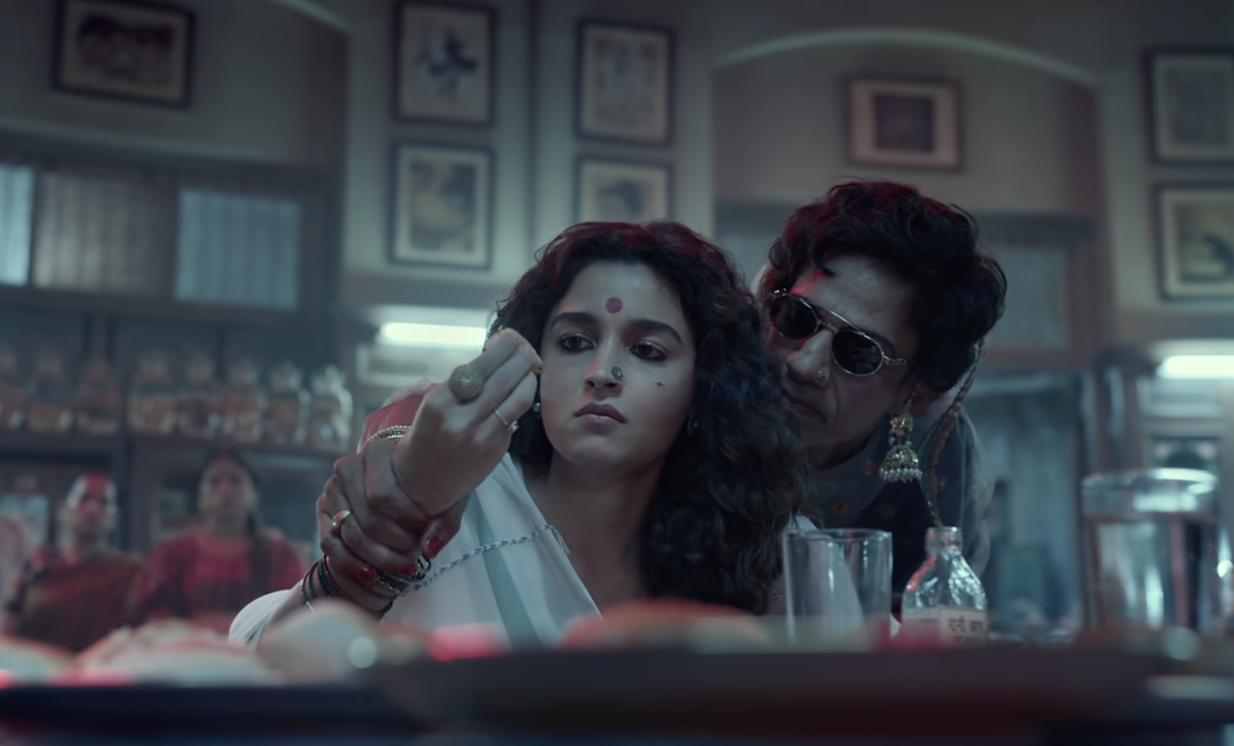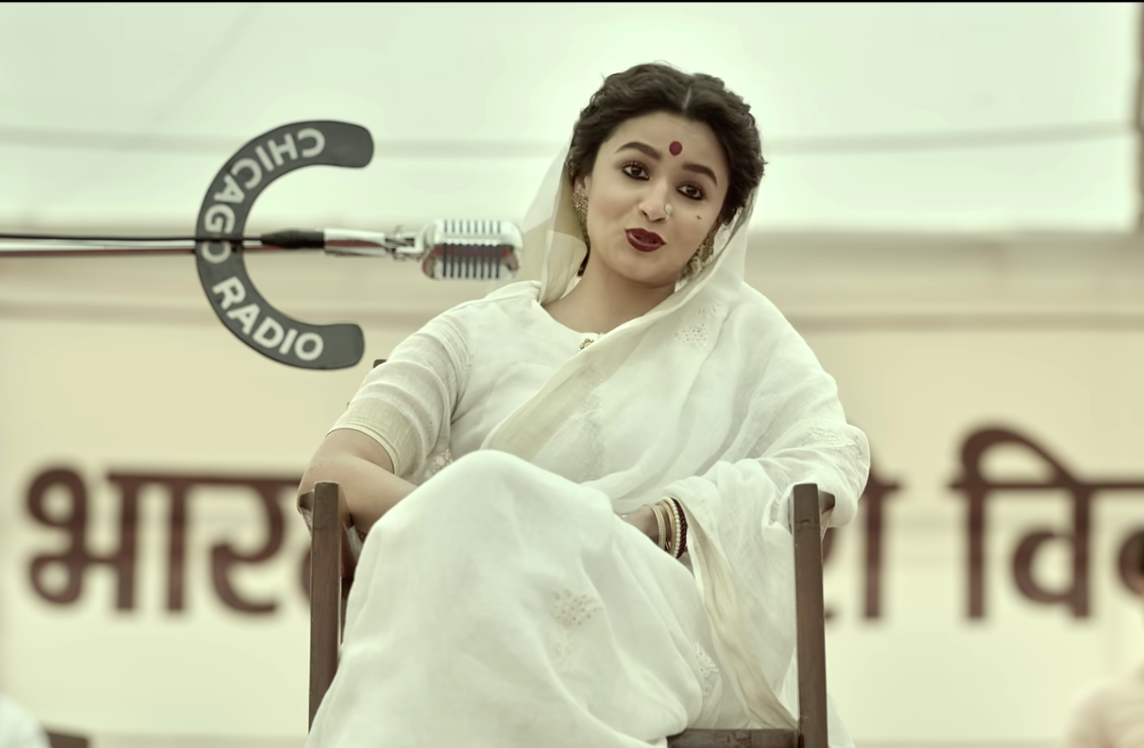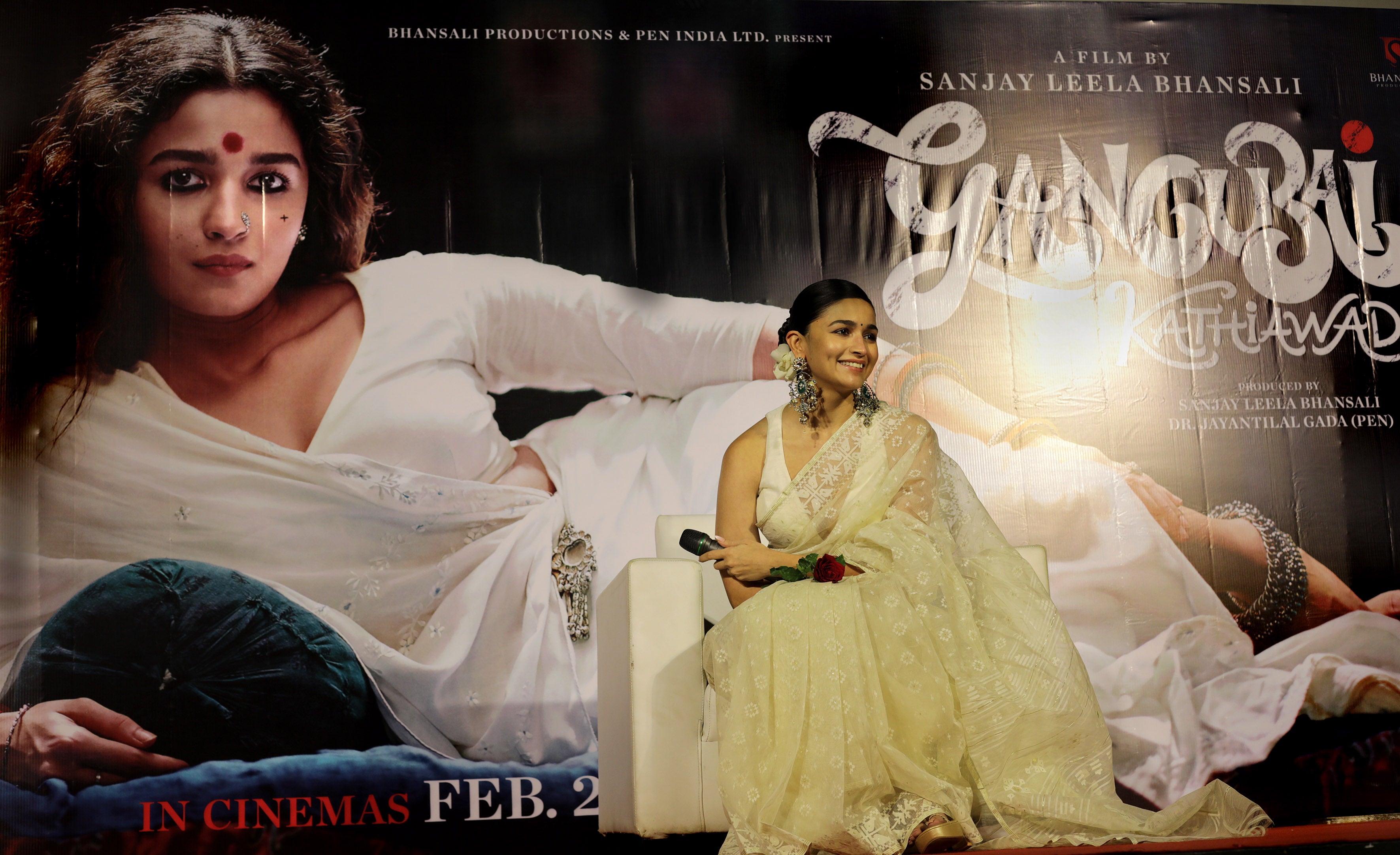Gangubai Kathiawadi: Sanjay Leela Bhansali’s blockbuster film lacks realism, respect and casting diversity
The director forgets that real red-light areas are not so glamorously endowed, Padma Shri recipient Sunitha Krishnan tells Peony Hirwani


A new Bollywood film that attempts to chronicle the harsh yet empowering, real-life journey of a sex worker who emerged as the undisputed madame of India’s second-largest red-light area, falls short in its portrayal of sex workers, say experts.
Gangubai Kathiawadi puts the spotlight on Ganga, a demure small-town girl from the western Gujarat state, who is deceived by a man she fell in love with. He sells her to a kotha (brothel in Hindi) for Rs 1,000 (approximately £10) in Mumbai city’s Kamathipura neighbourhood.
Indian auteur Sanjay Leela Bhansali has directed the feature, based on S Hussain Zaidi and Jane Borges’s book Mafia Queens of Mumbai, three years after the release of his last film.
Bollywood actor Alia Bhatt portrays Ganga, whose hard-hitting journey in the film eventually transforms her into “Gangu”, a tough sex worker who gets no options to leave the red-light area after a client physically abuses and leaves her with horrific injuries.
As time passes by, “Gangu” earns the respect of all the other women working in Kamathipura, who bestow her with the title of Gangubai. Towards the end of the film, Gangubai is helped by a journalist and wins an audience with India’s first prime minister Jawaharlal Nehru so she can urge him to save Kamathipura from being torn away by builders and draw his attention to sex workers’ rights in the country.
The film, hailed by critics and cinemagoers alike after earning over Rs 1bn ( approximately £10m) in the domestic box office since it was released on 25 February, has also sparked a conversation about Gangubai’s story.
While some of the country’s conservative millennials have begun to see sex workers in a more sensitive light, social workers, sex workers and sex worker advocacy organisations point to some aspects of the film that Bhansali – known as the auteur whose movies are characterised by their larger-than-life and extravagant sets – did not get right.

Their remarks on the movie, based on their own real-life experiences, reveal how the movie falls short on realism, respect and casting diversity.
“Looking at a Sanjay Leela Bhansali film, [Gangubai Kathiawadi] does appear to be larger than life in terms of beauty, and the glitz of a red light area,” Sunitha Krishnan, social activist and co-founder of anti-trafficking nonprofit Prajwala, tells The Independent.
“The real red light areas are not so glamorously endowed,” says Krishnan, who is the recipient of India’s fourth-highest civilian honour, the Padma Shri for her fight against sex crimes and trafficking.
The advocate says Bhansali has done a “fairly good” job in representing “several nuances in terms of how women are brought into these spaces, the kind of structure that’s there, the involvement of the mafia, the criminal elements, involvement of organised crime at different layers whether it is the liquor industry, or something else.”
Barring the glamorous persona of the film, which Krishnan doesn’t think the director can do without, everything else does make sense.
But do red-light districts look as glamorous as they are shown to be in Gangubai Kathiawadi?
“That’s not true. The real world of brothels is not so glamorous looking,” Krishnan says. “It’s very dirty, it’s very claustrophobic and it’s got a very different energy - not the energy that they show in the film.”
Taking the example of a scene where Bhatt’s character Gangu is treated poorly by one of her clients, Krishnan explains: “The way she was treated by one of the customers in the film, where she has slashes all over her stomach - that will give a real-time scar. That will be forever there on the face. The stitches will leave marks. But for Bhatt’s Gangubai, everything kept disappearing.”

“There are a number of women who have been [subjected to violence]. There are people who have used blades to scar them, hit them. Sadistic customers who have left marks on the bodies of women. It’s not like 10 days after they came out from the hospital that everything goes off. It doesn’t work like that,” Krishnan adds.
Speaking of the same scene, Kiran Deshmukh, the newly elected president of the National Network of Sex Workers (NNSW) in India, tells The Independent: “When it comes to us, we’ve also had customers who verbally abuse us, and beat us. However, all of this injustice used to occur before. As of now, we don’t really see such extreme cases of violence in our workplaces – because now we have come together in the collectives that are led by us, we are more coordinated, and we back each other up when anyone is going through something.”
Deshmukh, who is from Sangli, Maharashtra, is also unhappy with the dramatisation of some parts in the film. She’s not happy with the actors saying things like “ijjat bechna” (selling your honour).
She points out that self-respect is not a commodity to be bought or sold, nor is the body, nor is sex. Sex work is a service, and sex workers are mere service providers. Therefore, those phrases shouldn’t have been used in the film, according to her.
The other issue activists take exception to is cisgender actor Vijay Raaz’s casting as a trans person, that has come into question.
A trans advocate, who requested anonymity, wasn’t happy about Bhansali not casting a trans person for the character of Raziabai. Several of India’s social media users have consistently debated why Bollywood directors keep casting straight people in trans roles instead of having a fair portrayal of the community by casting them in roles written for them.
“Maybe the director and his entire team should’ve visited a couple of brothels around the country to realise what the actual condition is like before creating that beautiful set which I wish looked anything like our homes,” says Shakku, a sex worker from the central Madhya Pradesh state.
Join our commenting forum
Join thought-provoking conversations, follow other Independent readers and see their replies
Comments
Bookmark popover
Removed from bookmarks